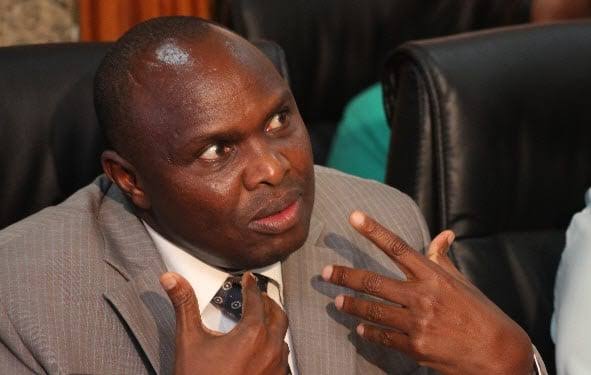According to a post by Kiprono on X, for the first time in Kenya’s history, the public seal was removed from the Office of the Attorney General and handed over to Felix Koskei, the Head of Public Service. This action has sparked serious concern across the country, with many Kenyans calling it a direct sign of state capture.
The seal, which is meant to authenticate official government documents, has always been kept by the Attorney General to ensure that government actions are backed by legal processes.
Giving it to Koskei, who is not a legal authority and answers directly to the President, is not only shocking but dangerous for Kenya’s democracy.
Many are now asking why such an important symbol of state authority was moved without public explanation. The bill that enabled this transfer has been disowned by Prime Cabinet Secretary Musalia Mudavadi, who made it clear it did not come from the Cabinet.

Even Parliament appears divided, with some MPs complaining they were misled during the legislative process. The whole thing smells of a backroom operation meant to take power from institutions that are supposed to be independent and hand it over to one man.
Felix Koskei has already been accused of controlling too many parts of government. As Head of Public Service, he oversees key decisions in ministries, parastatals, and state appointments.
Adding the public seal to his office gives him even more control, and critics believe this could be used to sign off on illegal deals, questionable appointments, or shady contracts without going through proper legal channels.

The fear is that the seal will no longer be a tool of national integrity but a stamp used to legalize corruption and political control.
Reactions on social media show that Kenyans are not fooled. People are asking what Koskei’s real intentions are and why the seal had to be moved in the first place.
Many believe that this is a deliberate plan by the Ruto administration to weaken independent offices and strengthen loyalty to the executive.

Instead of promoting accountability, this move opens the door for more secrecy, more abuse of power, and more corruption. Koskei may argue that this change is meant to improve government efficiency, but nothing about this looks like reform. It looks like a power grab.
The fact that even senior officials are distancing themselves from this bill should be a warning sign. Giving the public seal to a political appointee is a dangerous move that could destroy the little legal independence the country still has.





















Add Comment